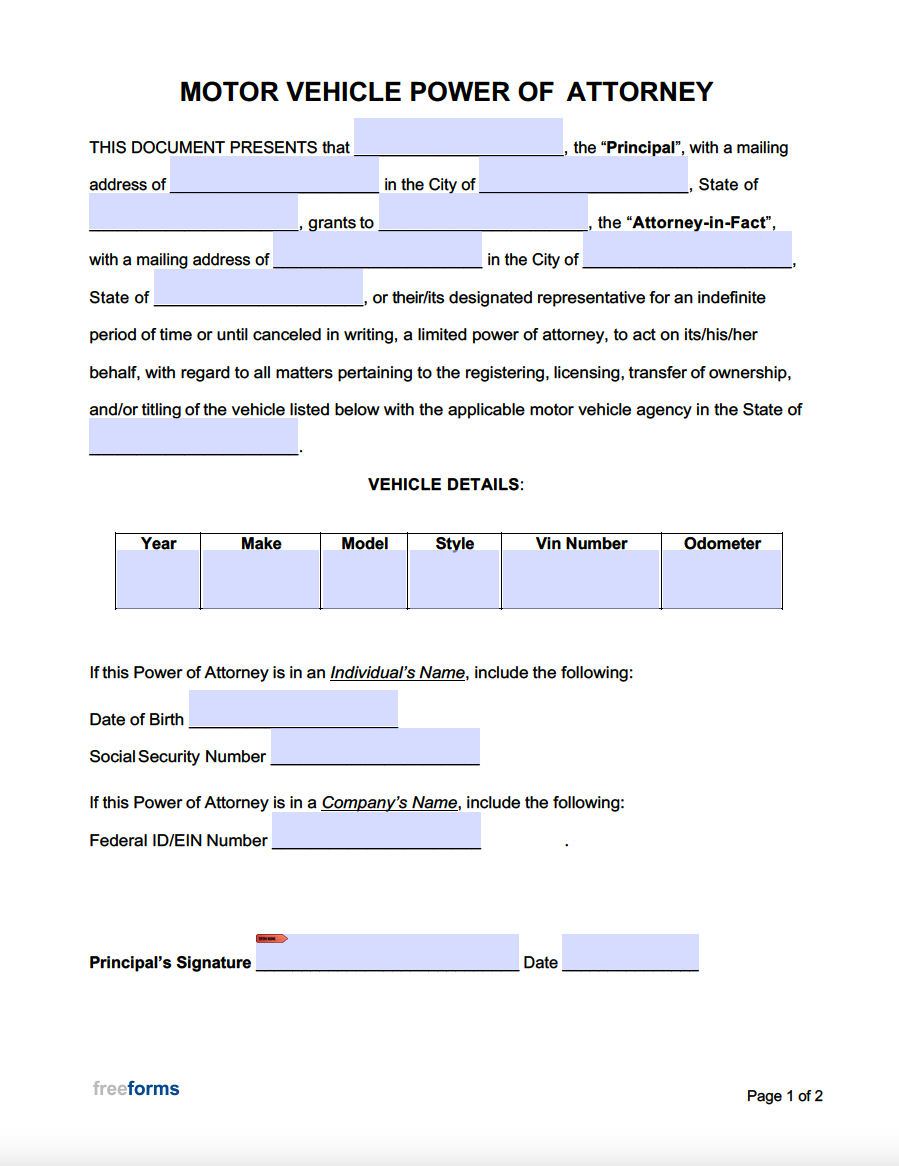What is a DMV Power of Attorney?
A DMV Power of Attorney is a legal document that authorizes someone else to handle your vehicle-related matters on your behalf. This can be useful if you’re unable to drive due to illness, injury, or other reasons.
When Do You Need a DMV Power of Attorney?
You might need a DMV Power of Attorney in several situations:
Vehicle Registration: To register a new vehicle or renew an existing registration.

Image Source: freeforms.com
How to Obtain a DMV Power of Attorney Form
The process for obtaining a DMV Power of Attorney form varies depending on your state. Here are some general steps:
1. Visit Your State’s DMV Website: Look for a section related to power of attorney or legal forms.
2. Download the Form: Download the appropriate form for your state.
3. Fill Out the Form: Carefully complete all the required fields. You’ll typically need to provide information about yourself, the person you’re appointing as your agent, and the specific powers you’re granting.
4. Sign and Witness: Sign the form in front of a notary public. You may also need to have one or more witnesses sign the form.
Tips for Completing Your DMV Power of Attorney Form
Be Specific: Clearly outline the powers you want to grant to your agent. This can help prevent misunderstandings and disputes.
Conclusion
A DMV Power of Attorney can be a valuable tool for managing your vehicle-related affairs, especially if you’re unable to do so yourself. By understanding the process and following the steps outlined above, you can obtain and complete the necessary form to authorize someone else to act on your behalf.
FAQs
1. Can I appoint multiple agents to handle my DMV matters?
2. Can I revoke a DMV Power of Attorney?
3. Is a DMV Power of Attorney the same as a general power of attorney?
4. Do I need to update my DMV Power of Attorney if my agent’s contact information changes?
5. Can I use a DMV Power of Attorney to sell my vehicle?
Dmv Power Of Attorney Form